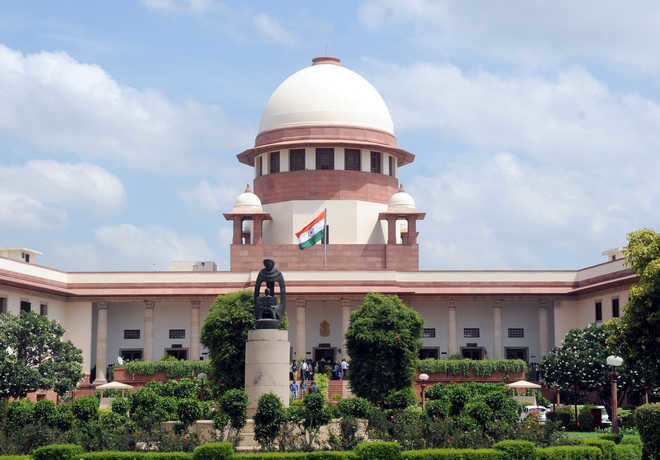Supreme Court refuses to stay Patna HC verdict setting aside Bihar law increasing SC, ST, OBC quota from 50 to 65 per cent
Satya Prakash
New Delhi, July 29
The Supreme Court on Monday refused to stay a Patna High Court verdict setting aside a law that increased reservation for Scheduled Castes, Scheduled Tribes, and Other Backward Classes in public employment in the state from 50 per cent to 65 per cent.
A three-judge Bench led by Chief Justice of India DY Chandrachud, however, agreed to examine the validity of the law in question.
Granting leave for appeal, the Bench – which also included Justice JB Pardiwala and Justice Manoj Misra — posted the petitions against the June 20 Patna High Court verdict for hearing in September.
On behalf of the Bihar Government, senior counsel Shyam Divan urged the Bench to stay the high court order, saying in a similar case from Chhattisgarh the top court had stayed the order of the high court.
“We will list the matter, but we will not grant any stay (on the high court’s judgment),” CJI Chandrachud told Divan.
In its June 20 verdict, the Patna High Court had struck down the Bihar Reservation (for Scheduled Castes, Scheduled Tribes, and Other Back Classes) (Amendment) Act, 2023, and the Bihar (in admission in educational institutions) Reservation (Amendment) Act, 2023.
It had declared the amendments unanimously passed by the state legislature in November 2023 “ultra vires” of the Constitution, “bad in law” and “violative of the equality clause”.
The Bihar Government has challenged the Patna High Court’s verdict, contending that the high court gravely erred in holding that the backward classes are adequately represented solely because backward communities together constitute 68.52 per cent of the total government and observed that there “is no requirement for the enhancement of reservations”, the Bihar Government said.
“The Amendment Acts were passed pursuant to the Bihar Caste Survey 2022-23, which clearly satisfy the social test parameters affirmed by this Hon’ble Court to breach the 50% ceiling of reservation”, the state government contended in its special leave petition
“The Amendment Acts endeavour to provide adequate representation to backward classes by enhancing the reservations for the Scheduled Castes (SC), Scheduled Tribes (ST), Extremely Backward Class (EBC) and Backward Class (BC) to 65% from the existing 50%”, it submitted.
Despite decades of affirmative actions and schemes, only less than 18 per cent of government employees come from the communities that constitute around 85 per cent of the population, the state government contended.
“This shows that the backward communities have still not been able to fairly compete with the general category applicants and the existing framework was inadequate. Therefore, the Hon’ble High Court’s conclusion is flawed for being reductive and divorced from reality”, the Bihar Government submitted.
The state government said it can’t be said that the Amendment Act introduces proportional representation as even the enhanced reservation aims to provide 65% reservation to the communities contributing 85% of the population.









